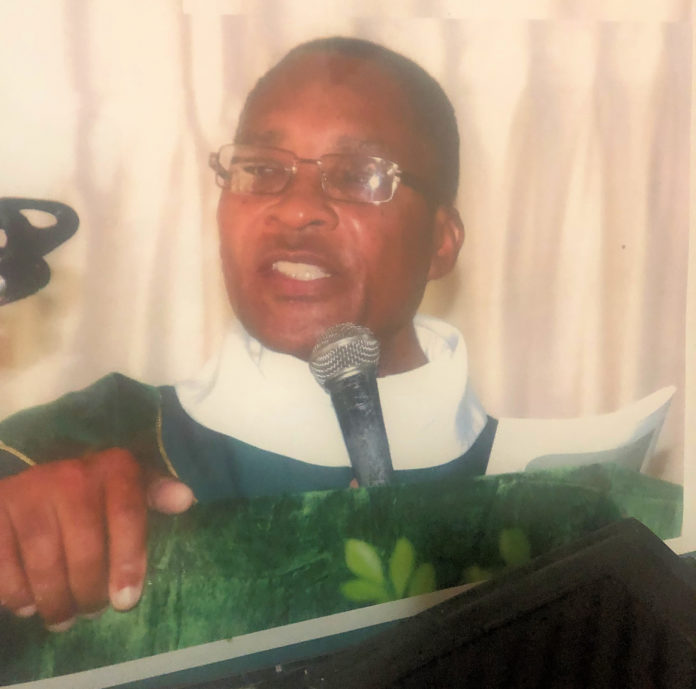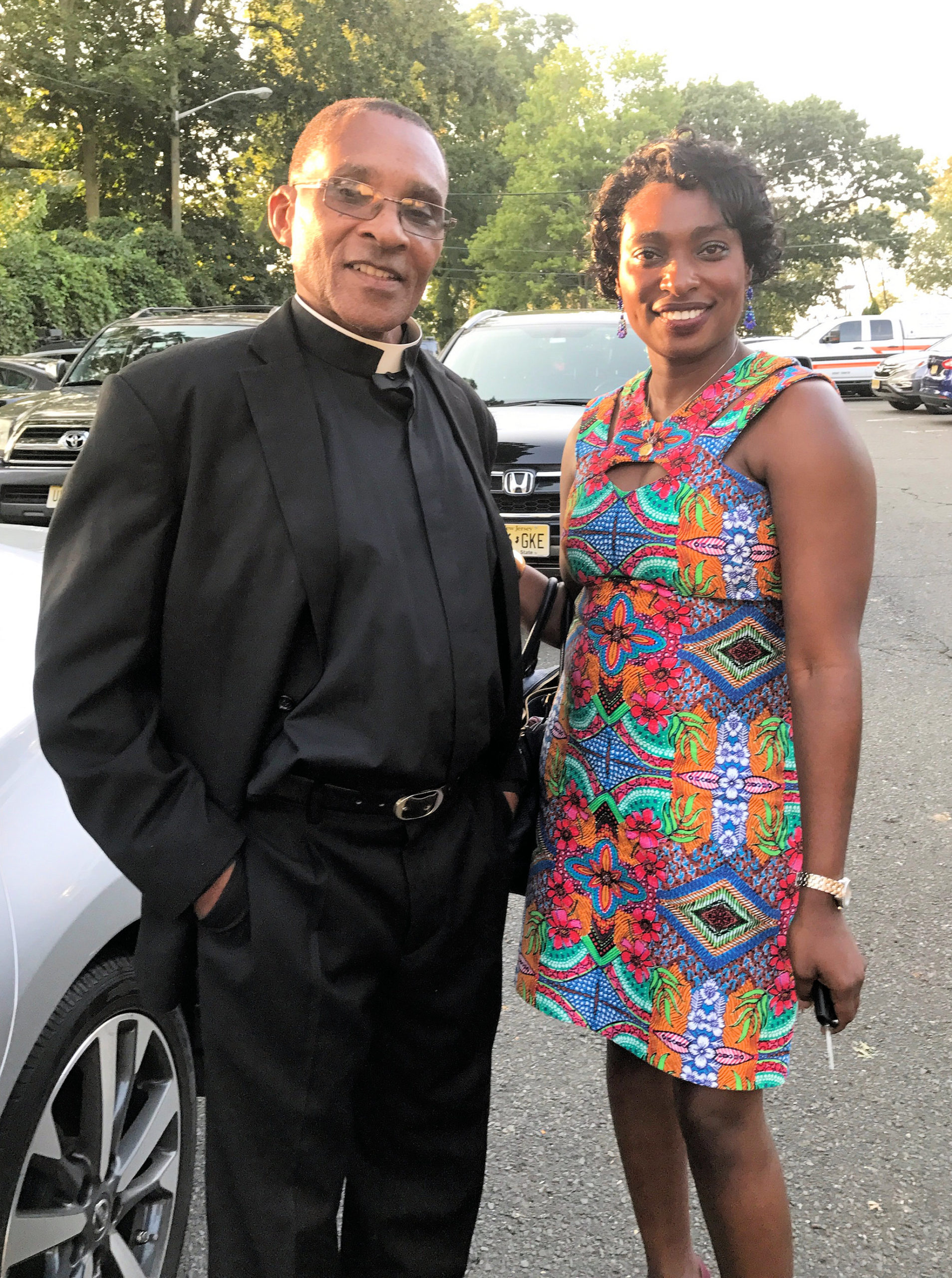
On Feb. 29, I met with journalist Kim Ives at a Brooklyn diner to discuss the current situation in the U.S. and the world. The subject of the new coronavirus came up. It was still being downplayed by the Trump administration, but Kim made me very worried the way he explained how the virus was very contagious and dangerous and would soon wreak havoc in the U.S. and around the globe.
I left the Brooklyn diner very upset. All kinds of thoughts went through my mind. In the weeks that followed, as more people tested positive and began dying from the virus, I became increasingly nervous.
One day in April, my uncle, Monsignor Vital Médé, called me from Haiti to tell me to take extra precautions since I live close to New York City. My uncle was concerned about his elderly sister living alone. I reassured my uncle that my siblings and I would not neglect my mother.
That call was typical of my Uncle “Ton” Vital. He was like the father I never knew. Since I was a little girl, he had looked after me and my family. At the time, my mother had emigrated to the United States where she was diagnosed with a brain tumor after a stroke. Doctors had given her six months to live. As she fought for her life, my grandmother took care of me and my siblings in Haiti.
Every Monday, Ton Vital would bring groceries to our house in Port-au-Prince. I remember once that my siblings and I were playing, making lots of noise. My grandmother yelled at us to be quiet. My uncle said to her, “Manman, let them play, they’re just children.” He wanted us to have a normal childhood, although his eyes sometimes betrayed the sadness he was feeling for his ailing sister.
He took care of us although he was a very busy man. He had been the parish priest first in Duval, then in Duvalierville. The Los Angeles Times interviewed him in 1986 following Jean-Claude “Baby Doc” Duvalier’s flight from Haiti. That was when Duvalierville changed back to its original name of Cabaret.
“The people want progress, economic and social progress and political liberty,” my uncle told journalist Dan Williams. The Times described my uncle as “a young parish priest whose preaching on freedom has made him a hero of Duvalierville.”

Ton Vital was indeed well-known and respected in Haiti. Born on Apr. 1, 1948 in the town of Thomazeau, his parents were land-owning farmers, Armand Médé and Marie-Sylvina Cenafils. He grew up among the Haitian people and did many great deeds for them. As a Jesuit priest who spoke out against the Duvalier dictatorship, he knew Father Jean-Bertrand Aristide very well. But Uncle Ton was very cautious and did not believe in expressing his political views too openly. He believed that religion and politics should not be mixed.
My mother recuperated from the brain tumor, and we, her children, went to live with her in the U.S.. Nonetheless, my uncle never abandoned us. He always sent money from Haiti to my mother to buy school supplies and clothes for us. He also paid my college tuition for a year. He was so proud of me when I graduated college.
Each summer, he would spend a one month vacation with my grandmother, aunts, uncles, and his 17 nieces and nephews. Ordained in 1972, he had risen in the ranks of the Catholic Church to become the Vicar General of the Port-au-Prince Archdiocese. He had also been the priest in charge at the Port-au-Prince Cathedral, the Cathedral of Saint Rose of Lima in Léogâne, and of the Saint-Martin and Saint-Yves parish of Delmas.
My uncle loved his family so much that he protected us from knowing that he was sick. On Sun., Jun. 2, I had my penultimate phone conversation with him. I asked how he was doing since my mom had told me that he was not doing too well. He told me that he had a cough and a fever for several days. He said the cough had stopped but the fever persisted, although not as high as in previous days. I asked him if he had been tested for COVID-19. He said there was no test available but that he was taking care of himself. He sounded confident and told me not to worry, that he is doing okay, and to tell my mother not to worry either. After I got off the phone with him, I called my mother to let her know that he was doing okay.
The next day, Jun. 3, my mother was worried and asked me to call him again. I reached him in the evening, and he told me the same thing: that he was doing okay and to tell my mother not to worry.
In those last two conversations which I had with him, there were no signs in his voice that he was experiencing any complications. But then my cousin called me four days later, at 6 a.m. on Fri., Jun. 5, asking me to pray for Ton Vital because he was not doing well. She asked me to let my mother know, but I refused to believe my cousin. I spent that entire weekend calling my uncle every couple of hours, hoping that he would pick up the phone. He never did. Uncle Ton was dying at Port-au-Prince’s Saint-François de Sales Hospital, of which he was the former director, as it is owned and operated by the Catholic Church.
On Mon., Jun. 8, 2020, at the age of 72, my uncle finally succumbed to the coronavirus. He had been a Catholic priest for 48 years.
He is survived by his two older brothers, Jean Posner Médé and Bernard Médé, and his two older sisters Bernadette Pierre and Bergena Florestal. His older twin sister, Idélourde Pétion, died four years ago.
He is also survived by his sisters-in-law, Jeannette Médé and Lydia Médé, brothers-in law Maurice Petion and Adner Pierre, and a host of nieces and nephews: Alex R. Médé, Kettlene Médé, Wilner Médé, Mary Judith Médé, Marie Michele Petion, Yves Bernard Médé, Gabrielle Médé Witter, Pierre A. Médé, Marie-Paule Florestal, Carl A. Médé, Marjorie Florestal Wright, Marie Geraldine Petion-Venesscar, Renold Florestal, Patrick Pierre, Anderson Médé, and Myradege Pierre, as well as many great-nephews and great-nieces.
It is heart-breaking for my family that we cannot travel to Haiti to pay our respects to this man who was such a central figure in all our lives. Everything was left in the care of Monsignor Mésidor, Father Mémé, and the many others who took care of him in his final days.
A memorial service is planned in the near future.
My uncle’s untimely death has left a giant hole in my heart. I am not sure the pain of his loss will ever completely fade.









